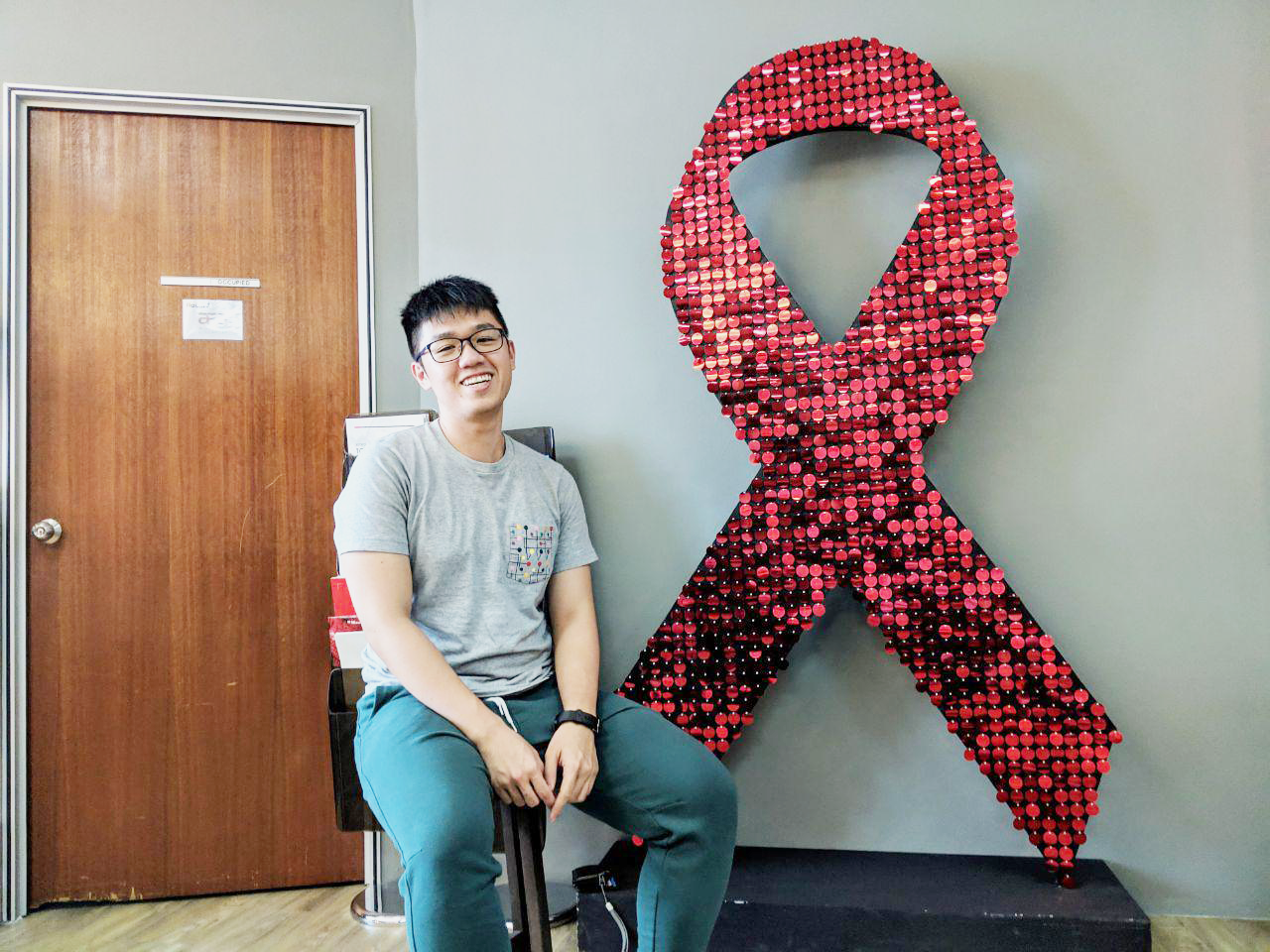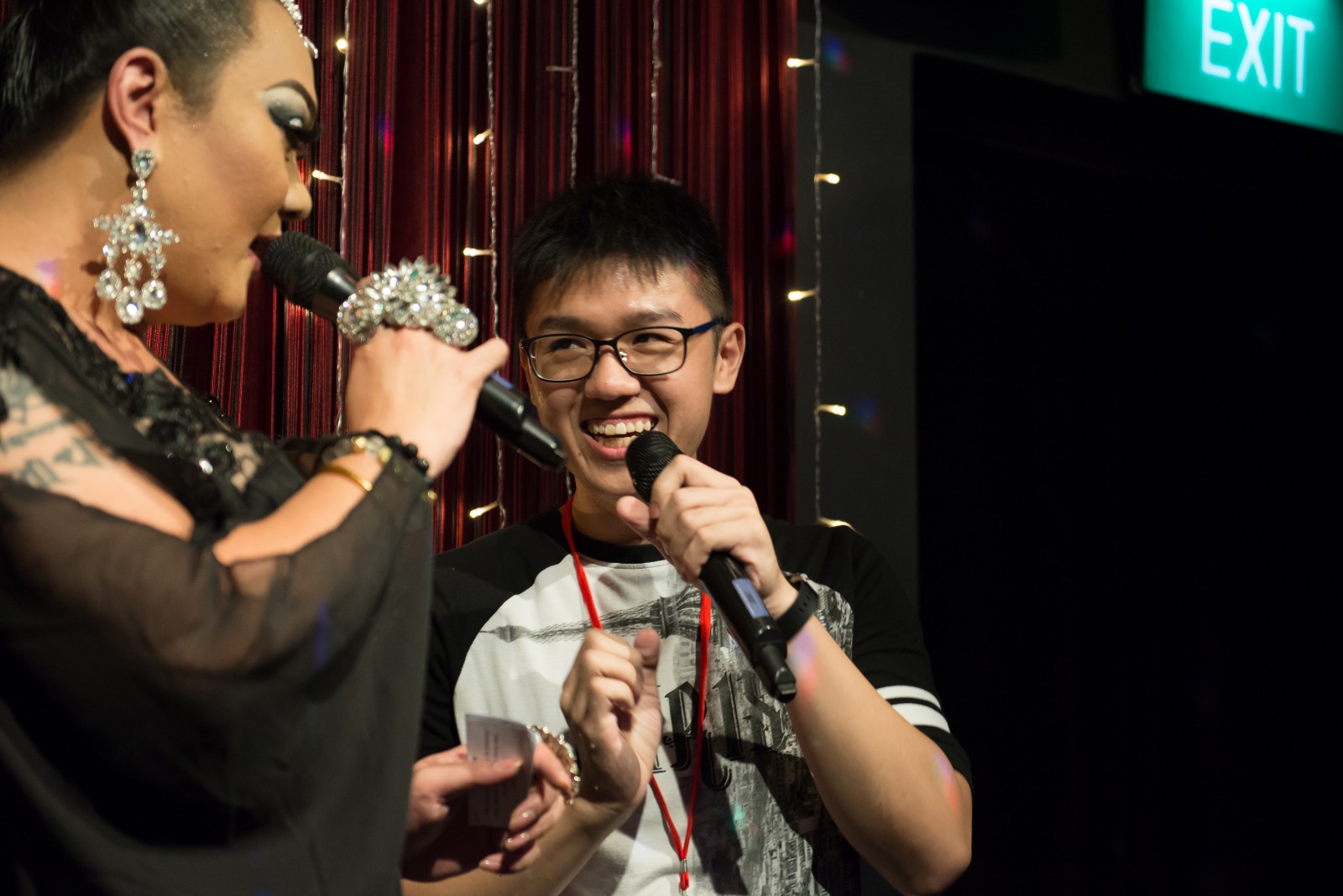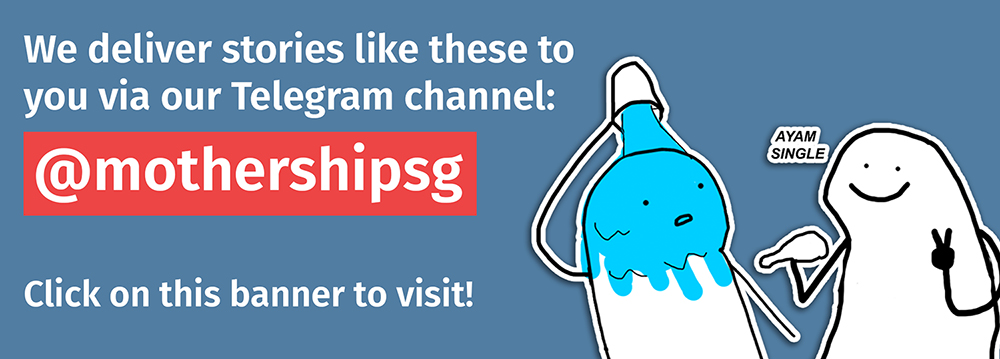Calvin Tan felt like your average 22-year-old Singaporean.
He was bubbly, cracked self-deprecating jokes, and added life to an otherwise quiet and sterile meeting room with his infectious laughter and quips.
Despite his likeable personality, Tan doesn't get asked to hang out with friends often -- because he has been labelled as "dirty".
All these because he is one of the four openly out Persons Living with HIV (PLHIV).
 Tan is one of the four openly out persons living with HIV. Photo by Fasiha Nazren
Tan is one of the four openly out persons living with HIV. Photo by Fasiha Nazren
What's HIV?
For the uninitiated, HIV stands for Human Immunodeficiency Virus, a virus that attacks the body's immune system and leaves it defenceless against infections by germs and cancerous growths.
The life-threatening condition, if left untreated, will progressively destroy the immune system.
However, with medication, a good diet, ample exercise and rest, a PLHIV can keep the virus under control -- meaning that it will not necessarily develop into AIDS (Acquired Immunodeficiency Syndrome).
In fact, with advances in medicine, it has turned the fatal infection into a chronic disease, much like diabetes and hypertension.
While much has changed about treating HIV, some of the negative assumptions and stigma that people associate with the virus is still around, as evident by Tan's experience in living with the virus.
Started with a month-long fever
In 2015, Tan had a splitting headache which spiralled into a month-long fever that left him almost entirely immobile.
Then a first-year polytechnic student, he shared that this had happened during the end-year exam period, and his unknown condition had left his schoolmates and himself worried and confused.
However, Tan had an inkling that it might have something to do with the unprotected sex he had with multiple partners, and knew that he should get himself tested for any sexually transmitted diseases (STDs).
But he couldn't do it immediately, as the fever had left him extremely weak.
Tan had a little laugh as he reminisced the time he went to Actions for AIDS (AFA), a non-profit organisation in Singapore that provides anonymous testing service, to get himself tested.
However, it was a sombre situation three years ago when Tan was given his initial test results.
The results came out reactive, which means that attempt to fight off HIV has been detected in the blood stream.
"I remember staring at the result and I could feel the whole world just stop. I thought I could handle it, but I had this overwhelming sense of grief and I just broke down for an entire 10 minutes."
Little time left for grief
Tan then had to take a confirmation test on the same day. but waited another arduous 10 to 14 days for the results.
As his second year in polytechnic was approaching, Tan gave himself the duration of the waiting period to grief and confront his overwhelming feelings, before arriving at the decision to pursue treatment if he does indeed turn out to by HIV positive.
And it was midway through a lecture when he received the fateful call that would change his life.
While he could have taken pity on himself, he immediately booked an appointment for his first treatment.
"I needed something to rely on and that had to be treatment -- it was my saving grace."
Low viral load
Tan consumes a cocktail of three pills that helps to prevent the virus from entering his white blood cells.
While his viral load -- a measure of the number of viral particles in the blood stream -- is now undetectable in his bloodstream, he still has to continue on the medications for the rest of his life.
Missing a round of medication for more than 12 hours can cause the virus to be more resistant to his current prescription.
Another hurdle he had to overcome, however, was the hefty price tag for these medications.
S$600 per month
A month's worth of medication originally costs S$600, but Tan eventually got a subsidy from his hospital and secretly forked out S$60 from his monthly allowance to pay for his medication.
Getting subsidies required his family's CPF contribution documents, but Tan managed to do it without his family finding out about his condition.
It just so happened that the medical subsidy application coincided with his school's financial assistance scheme application period:
"I told my mum that I was going to apply for financial assistance, so she just passed me the documents and I printed extra copies for it."
His only confidante
Tan knew that he'd "go crazy" if he kept his condition to himself, but telling his family about it was not an option at that time.
The first person he confided in was his close polytechnic classmate, who got worried when he didn't attend school for an entire month.
And to this day, it's not surprising that they remain close friends:
"After I revealed my secret to her, she said that she'll be there for me and reminded me to take my medication on time everyday."
Coming out to his family
For two and a half years, this good friend was Tan's only confidante.
But he couldn't keep this secret from his family forever -- especially when he had to go for the National Service pre-enlistment check-up.
"I wanted them to find out about my condition through me and not my NS letter, so I had to tell them soon."
Tan sat his father down in his room five minutes before it was time to take his medication and told him as it is: "Dad, I am HIV positive."
His father just remained quiet, possibly out of worry.
Sensing the worry in his father, Tan took out a folder of receipts from all his medical appointments and downed his medication right in front of him to show that he has nothing to worry about:
"I downed my pills right in front of him and was like, yeah, I'm independent."
His father said he was disappointed in him, but only in a way an understanding father would:
"He knows that HIV isn't life threatening, he was just upset that I didn't tell him earlier and couldn't be there for me."
Coming out to his mother, on the other hand, was a lot more difficult.
Tan only told his mother about his condition about four months after his father knew -- his mother is a "busy woman", according to him -- and it took her a few months to know that her son is well taken care of.
"My mother, she is Chinese-educated, and HIV means the same as AIDS in mandarin which is 艾滋病 (ài zī bìng). She was worried that I was not taking care of myself, so I brought her to my medical check-up to give her a sense of relief."
His parents offered to pay for his medication, but Tan did not allow it.
Losing friends and family
While Tan's immediate family, a few of his aunts and some of his closest friends were accepting of his condition, the rest of the people around him did not take to the news too well.
Some of his extended family members have avoided Tan and his family entirely, and Tan says he feels "guilty" for the alienation of his entire family.
He also admits to feeling lonely at times, as he doesn't get asked to hang out as often as he used to by his friends.
"Out of a group of 20 friends, maybe every six months I get asked by one of them to a birthday party."
Before they found out about Tan's diagnosis, he would be invited to "almost every gathering".
Blames lack of awareness, not people
He doesn't blame them, though, but instead the lack of awareness surrounding HIV, and its existence as a taboo.
"They probably don't know how to approach the subject, so maybe they think it's best to avoid it altogether."
As it is, Tan has also faced prejudice by individuals who are assumed to be more knowledgeable about HIV -- including a nurse.
Dialled for the police
Earlier this year, Tan went to a polyclinic for a medical check-up and when he was asked for his sexual history, declared that he was HIV positive.
Without even letting Tan finish his sentence, the nurse was already dialling for the police.
In case you didn't know, it is against the law for a PLHIV to engage in sexual activities if they do not disclose their condition to their partners.
What the nurse didn't know is that Tan's partner is aware of his condition and is also a PLHIV.
But instead of apologising for the misunderstanding, the nurse just uttered a "tsk", prescribed him some antibiotics, and sent him off.
Doing his part to raise awareness
While Tan shared these anecdotes with short bursts of laughter every now and then, he remains acutely aware that he is not the only one facing discrimination and misinformed assumptions from the public.
Which is why Tan became a volunteer for AFA not just because he felt indebted to the organisation that supported him from the day he walked in for his anonymous testing, but also because he sincerely wants to help other PLHIV through their journey.
 Tan hosting AFA's awareness outreach event with drag queen Sammi Zhen, where they provide free testing to patrons. Photo courtesy of Calvin Tan.
Tan hosting AFA's awareness outreach event with drag queen Sammi Zhen, where they provide free testing to patrons. Photo courtesy of Calvin Tan.
Now, Tan is working full-time with AFA as a program coordinator to reach out to more PLHIVs and remove the negative perceptions people have about HIV.
"There will always be an isolation and stigma that PLHIVs face. As long as I can educate or change the mindset of one person, my job is more than done."
Top image by Fasiha Nazren
If you like what you read, follow us on Facebook, Instagram, Twitter and Telegram to get the latest updates.

